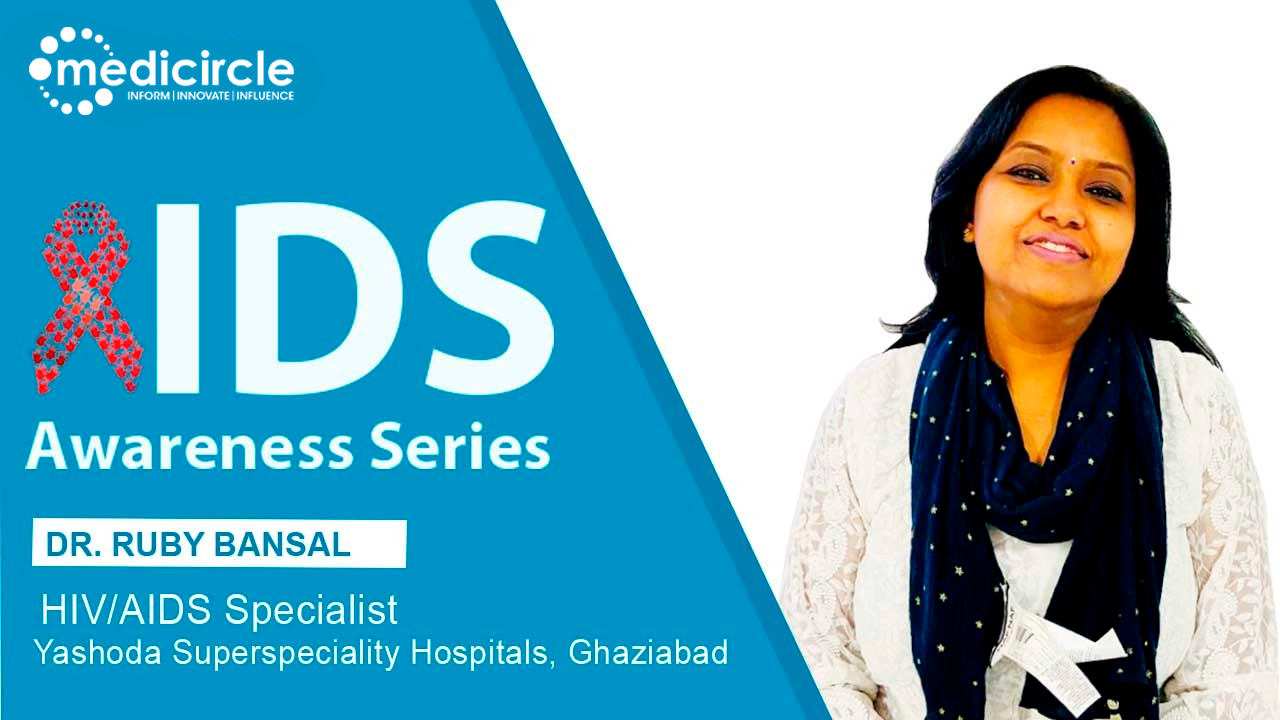Dr. Ruby Bansal is a renowned HIV Specialist in Surya Nagar, Ghaziabad. She has helped numerous patients in her 24 years of experience. She has completed Fellowship in HIV Medicine, MD, Observership in HIV. She is an Active Member of the NABH team of the Hospital and the Infection control committee of the Hospital. She is currently practicing at Yashoda Superspeciality Hospitals, Ghaziabad.
HIV - Modes of transmission
Dr. Ruby says, “HIV is Human immunodeficiency virus. There are different modes of transmission of this virus. They are
1. Through unprotected sex
2. From HIV pregnant mother to her baby
3. Infected blood transfusion
4. Infected syringes
HIV attacks and destroys the body’s immune cells thereby reducing the body's immunity. And owing to this lower immunity, the body gets predisposed to other diseases present in the environment. This way unknowingly, the body gets multiple diseases. Now, this group of diseases is called AIDS i.e Acquired Immunodeficiency Syndrome. Therefore, HIV causes AIDS."
Who should get tested for HIV?
Dr. Ruby expresses, “AIDS cannot be established until the diagnosis is not made. Early diagnosis is the key to success. We all should get the HIV test done with our regular checkups. Because the effectiveness of HIV treatment largely depends upon the stage or the time at which it is being presented.”
Dr. Ruby mentions a group of people who should get frequent HIV tests done
People who have ever had unprotected sexual contact
Tuberculosis patients
People who have sexually transmitted infections
People who have had herpes
People who go for frequent blood transfusions.
People with hepatitis B and C
People who take injectable drugs
All pregnant women
HIV Monitoring
Dr. Ruby states, “Generally doctors perform antibody tests to diagnose HIV. Once diagnosed, it becomes very important to start treatment. HIV AIDS is a lifelong disease. It is a chronic manageable disease and is not a death sentence anymore. Treatment is very simple. Patients have to take one tablet daily. The treatment requires neither admission nor injectable drugs. Patients are tested for CD4 cells, viral load, STIs and after the results come, doctors start medicines. Thereafter the treatment is monitored regularly. With regular follow-up and monitoring, the condition can be managed very well."
Dr. Ruby concludes, “People need to remove this deception from their mind that HIV AIDS is a death sentence. Now it is a chronic manageable disease. With timely diagnosis and treatment, the condition can be treated and managed. A single pill every day will keep the viral load suppressed. Don’t go for any alternative system of medicine. Antiretroviral therapy (ART) can manage the condition beautifully. Don’t stop the treatment in the middle. The medicine has to be taken daily without fail. Research is still going on, we will soon find a curative treatment."
(Edited by Renu Gupta)

 HIV AIDS is a lifelong disease. It is no longer a death sentence and is a chronic manageable disease. Dr. Ruby Bansal, HIV Specialist listed the group of people who should get their HIV test regularly.
HIV AIDS is a lifelong disease. It is no longer a death sentence and is a chronic manageable disease. Dr. Ruby Bansal, HIV Specialist listed the group of people who should get their HIV test regularly.









.jpeg)




.jpeg)

.jpg)













